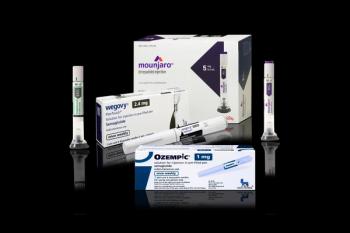
Dr Jeffrey Sippel: NIV Denials Lead to Hospital Admission for Patients with ALS
Jeffrey Sippel, MD, MPH, explains the language used in a major Medicare Advantage plan was not written for patients with ALS, exposing a gap in necessary coverage.
Because of frequent
Transcript
Can you explain the reasons cited for denying ALS patients the non-invasive ventilators (NIV)?
Jeffrey Sippel, MD, MPH: I think that United probably follows Medicare language to the tee. And so if we walk through the Medicare language on this topic briefly of RAD (respiratory assist device) device versus NIV device, the Medicare document really states that you must try a RAD device first and fail before you can reach an NIV device. Medicare also has a section that says: here's how you qualify for an NIV device and it basically says refer to the paragraph above, you have to fail a RAD device first.
The challenge is that there are delays. These patients can sometimes have rapidly progressive illness, and the Medicare documents were written predominantly for sleep apnea, predominantly for restrictive thoracic diseases, like kyphoscoliosis, or other restrictive conditions. And so the neuromuscular population fits in these criteria, by default, not by design. I think that that's where the insurance companies on one hand are trying to make Medicare the bad guy here, by adhering to their definitions, yet their definitions were not written with ALS patients in mind.
Where we are now is we are basically planning on denials. We are starting with the RAD devices, which isn't necessarily wrong, but it just adds more complexity, because the machines again, have only one programming option, for starters. And so then, when we feel that the patient is doing poorly enough that we would really need our NIV device now, the short answer is now we're starting to just admit those patients, and that's horrible. They have limited mobility, they need to be at home with their family, their support is at home. And then we say, “Oh, good news, bad news. We have to admit you to the hospital.” And then they're all appropriately worried about other things that just happen in hospitals because of reduced mobility, reduced usual daily activities, etc.
Reference
Flaherty T. Stakeholders push back against vent denial rates. HME News. Published August 15, 2023. Accessed November 8, 2023.
Newsletter
Stay ahead of policy, cost, and value—subscribe to AJMC for expert insights at the intersection of clinical care and health economics.

















































